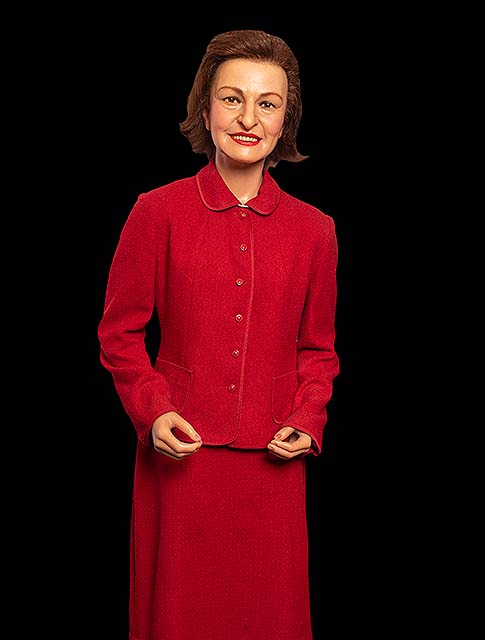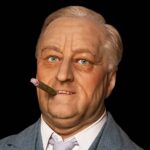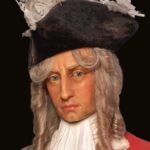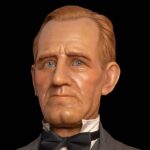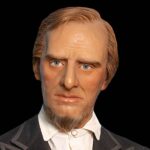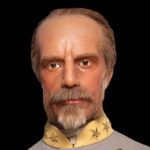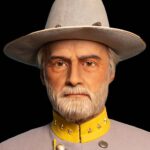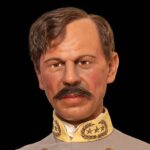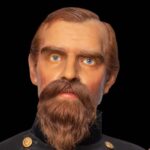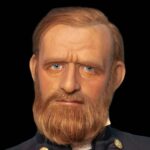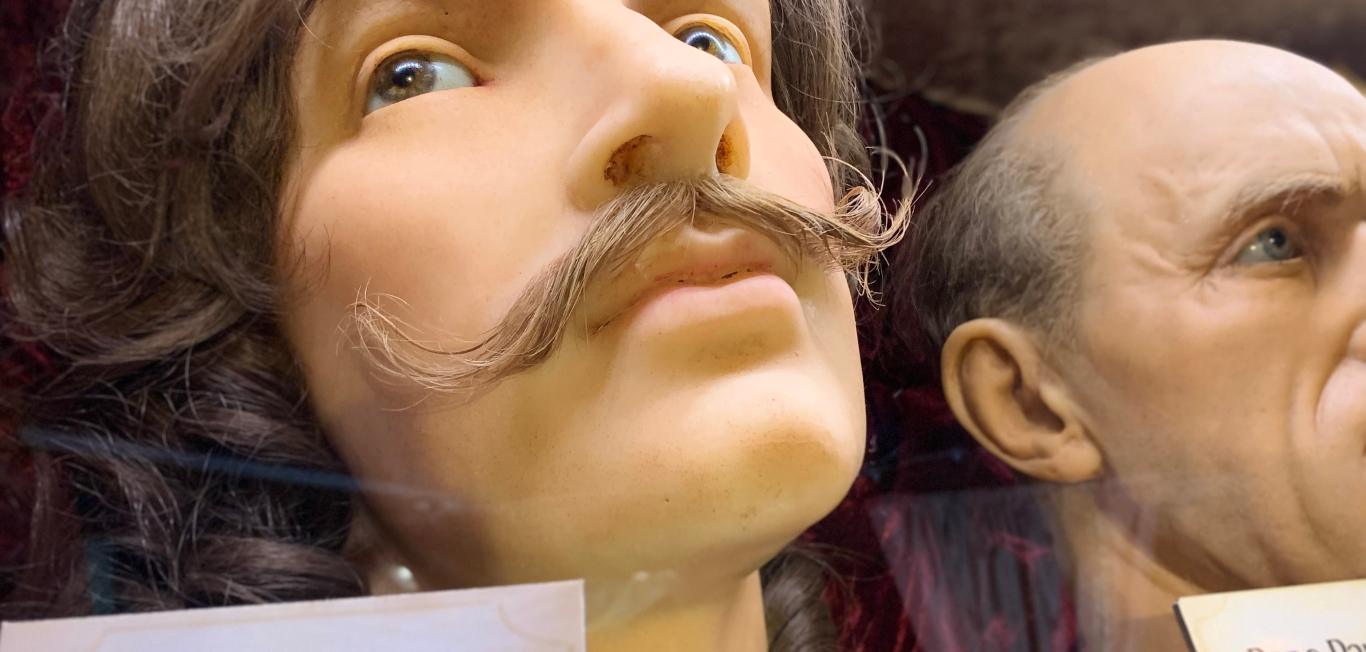Learn About Lady Bird Johnson
Claudia Alta Taylor (1912-2007), better known as Lady Bird Johnson, was the wife of President Lyndon B. Johnson. Between 1963 and 1969, the length of Johnson’s presidency, she served as the First Lady of the United States. During her tenure, Lady Bird Johnson was known for her direct interactions with Congress fueled by her never-ending support for beautifying the diverse cities and highways of America. An East Texas native, Johnson was born in a country mansion near Karnack, Texas. “Lady Bird” received her unique nickname by her nurse at birth on December 22 of 1912. Johnson carried the name throughout her life, a testament to her enduring connection to nature and her deep passion for environmental conservation. Lady Bird Johnson often encouraged Americans to involve themselves in local environmental conservation, which she modeled by planting flowers in Washington D.C. Lady Bird Johnson’s legacy is characterized by her long-term endeavor to preserve the natural beauty of the landscapes of the United States. She is also remembered for her role in the passing of the Highway Beautification Act of 1965, resulting in improved scenery on America’s vast interstate highway system by limiting junkyards and supporting the planting of wildflowers along federal highways. Because of her outstanding contributions to the beautification of the United States, Lady Bird Johnson was awarded the Presidential Medal of Freedom in 1977, the highest award for civilians, as well as the Congressional Gold Medal in 1984. Today, Lady Bird’s beautification efforts can be seen with the diverse flora seen in our nation’s cities and highways.
First Lady in the Making
The biography of Lady Bird Johnson begins on December 22, 1912, in Karnack, Texas. She was born Claudia Alta Taylor to her father, Thomas Jefferson Taylor and mother, Minnie Pattillo Taylor. The youngest of the couple’s three children, Lady Bird had two older brothers, Tommy and Tony. As a baby, she was called “Lady Bird” by her nursemaid, Alice Tittle, who commented that she was, “as pretty as a ladybird.” The nickname quickly caught on, with her father and siblings often calling her Lady.
DID YOU KNOW?
Lady Bird Johnson was awarded the Presidential Medal of Freedom in 1977, the highest award for civilians.
She grew up in her family home, The Brick House, an antebellum plantation-style home. At the age of five, Claudia Alta Taylor’s mother passed away, leading her Aunt Effie Pattillo to take care of her and her siblings. During summers, she would often travel with her aunt and brothers to visit their family home in Alabama. As a child, Lady Bird was shy and often spent time outdoors, which greatly fueled her love of nature, particularly for East Texas wildflowers, as well as a drive for future environmental stewardship.
Lady Bird was well-educated and graduated from high school near the top of her class. After high school, Lady Bird originally furthered her education at the University of Alabama, before feeling homesick and transferring to the St. Mary’s Episcopal College for Women, a junior college in Dallas, Texas. Following graduation, Lady Bird enrolled at the University of Texas at Austin, where she received a bachelor’s degree in history in 1933. As an aspiring newspaper reporter, Lady Bird also earned a bachelor’s degree in journalism from the University of Texas at Austin in 1934.
Personal Life
Taylor and Lyndon B. Johnson were wed on November 17, 1934, at Saint Mark’s Episcopal Church in San Antonio, Texas, using wedding bands from Sears, Roebuck and Co for $2.50 each purchased by their friend and the Postmaster of San Antonio, Dan Quill. The couple honeymooned in Xochimilco, Mexico, renowned for its Floating Gardens. Their marriage was a partnership, with each serving as the other’s confidante and loving partner. Lady Bird ran Lyndon’s Congressional office while he served as a Naval officer during World War II. She was a vital element of Lyndon’s political career, managing their family business investments and funding his early campaigns with her inheritance.Outside of politics, Lyndon and Lady Bird’s legacy was preserved by their two daughters.
In 1944, the couple welcomed their first daughter, Lynda Bird Johnson followed by the birth of their second daughter, Luci Baines Johnson, in 1947. In 1960, Lyndon joined the Democratic ticket with presidential candidate John F. Kennedy. During the campaign Lady Bird actively contributed, traveling across the country on the campaign trail. Tragically, in 1963, Lyndon and Lady Bird were thrust further into the spotlight when President John F. Kennedy was assassinated while riding in a motorcade in Dallas, Texas, and the couple became President and First Lady. Lyndon was elected in 1964, and served one full term as the 36th President with Lady Bird by his side as First Lady and Hubert Humphrey as his Vice President. In 1969, the Johnson family’s time in the White House ended when Lyndon chose not to run for reelection and the family moved back to Texas. Lyndon passed away in 1973 and Lady Bird continued to live in the public eye, completing philanthropic work as a staunch environmentalist and honoring her late husband’s memory.
Fun Facts About Lady Bird Johnson
Claudia Alta Taylor, better known as Lady Bird Johnson, was an exceptional woman whose actions toward improving
the world around her expanded beyond her role as First Lady. There are a plethora of interesting facts about Lady Bird.
Lady Bird adored the outdoors
During childhood, Claudia Alta Taylor often spent her days outside, exploring the natural world around her, becoming fond of wildflowers and other flora and fauna. Throughout her life, Lady Bird maintained her fervent environmentalism and used her role as Second Lady to urge Congress to take action in preserving America’s natural beauty. As a philanthropic effort, she founded the Lady Bird Johnson Wildflower Center in Austin, Texas, her home state, in 1982.
DID YOU KNOW?
Lady Bird founded the Lady Bird Johnson Wildflower Center in Austin, Texas, her home state, in 1982.
A key supporter during her husband’s presidency (1963-1969)
As First Lady, she was placed in the role of the honorary chairman of the National Head Start Program, an organization focused on enabling access to early childhood education for underprivileged preschool-aged students. This program was in conjunction with her husband’s “Great Society” plan to reduce American poverty by increasing the federal government’s involvement in the realms of education and healthcare.
Honors Throughout
Johnson’s Life
Because of her philanthropic efforts, as well as her integral contributions to passing the environmental-centric Highway Beautification Act of 1965 through Congress, Lady Bird Johnson has received a variety of different accolades. Most notably, President Gerald Ford recognized her with the Presidential Medal of Freedom in 1977 and the Congressional Gold Medal in 1988, awarded by President Ronald Reagan.
DID YOU KNOW?
Johnson was awarded the Presidential Medal of Freedom in 1977 & Congressional Gold Medal in 1988.
Astute businesswoman
Lady Bird Johnson holds the distinguished title of being one of the few First Ladies to earn a million dollars before her husband became president, largely due to her investments in radio and television stations. Using her inheritance and investment profits, Lady Bird also helped finance her husband’s early political campaigns.
Exceptional author
Lady Bird Johnson was known for writing A White House Diary, an 800-page account of her time in the White House as Second and First Lady, including the turmoil-filled period following President John F. Kennedy’s assassination in 1963.
Highly involved as the future Second Lady
During the 1960 election campaign, Lady Bird was an important component of the Democrat effort. Due to Jacqueline Kennedy’s pregnancy, Presidential nominee John F. Kennedy requested Lady Bird to increase her presence at Democrat campaign events. Lady Bird traveled all over the country, hitting 11 different states and covering 35,000 miles.
The Legacy of Lady Bird Johnson
Claudia Alta Taylor is most celebrated for her environmental initiatives, her efforts towards highway beautification with the Highway Beautification Act of 1965, which aimed to control billboards and enhance the natural beauty along America’s interstate highways, are exceptionally notable. As First Lady, she pioneered American actions in preserving and developing the environment by planting wildflowers across the nation’s capital, Washington D.C. Another goal was to make D.C. appear more welcoming to visitors, her beautification efforts on surrounding highways. In doing so, Americans across the country began to do the same in their towns and cities, leading to the planting of millions of flowers and trees.
DID YOU KNOW?
The George Washington Memorial Parkway in Washington D.C. was renamed the Lady Bird Johnson Park in 1968
Outside of the development of natural beauty along U.S. highways, Lady Bird Johnson was a champion for the preservation of nature and played a critical role in the further development and support of America’s National Park Service. In urban areas, Lady Bird encouraged the creation of pocket parks and converting abandoned neighborhoods into parks and recreation centers. Lady Bird’s continuous endeavors towards improving the natural world around her were so significant that a section of the George Washington Memorial Parkway in Washington D.C. was renamed the Lady Bird Johnson Park in 1968.
Inspiration in Lady Bird Johnson’s Environmental Initiatives
Growing up in rural Eastern Texas and spending her summers visiting family in Alabama, she developed a stalwart adoration for nature that prospered into Lady Bird Johnson’s legacy of environmental conservation and advocacy. After marrying Lyndon B. Johnson in 1934, Lady Bird’s inspiration expanded as she traveled across the country during political campaigns, especially during the elections of 1960 and 1964. While traveling, she encountered the diverse landscapes of America and the need for their protection. Inspired by her encounters on campaign trails, Lady Bird backed projects throughout and after her time in the White House. Using her position as First Lady, she pushed Congress to pass legislation like the Highway Beautification Act. Later on in her life, she established the Lady Bird Johnson Wildflower Center in Texas. Her dedication to environmental advocacy was motivated by her drive to ensure that future generations of environmentalists could appreciate the same natural wonders she held close to her heart.
Late in Life
Shortly after Lady Bird and Lyndon’s time in the White House ended in 1969, Lyndon passed away following a heart attack in 1973. Despite the loss of her husband, Lady Bird continued her dedicated service to environmental and philanthropic work for the rest of her long life. In 2002, she suffered a stroke, impairing her speech, vision, and mobility, but not hindering commitment to her lifelong environmental stewardship. On July 11, 2007, Lady Bird Johnson passed away at home at the age of 94, in West Lake Hills, Texas. At the time of her death, she had seven grandchildren and eleven great-grandchildren. She was laid to rest beside her husband, Lyndon, at the LBJ Ranch in Stonewall, Texas, leaving behind an everlasting legacy of environmental conservation and committed public service.
FAQs
Why is Lady Bird famous for highway beautification?
While First Lady of the United States (1963-1969), Lady Bird consistently pushed for environmental conservation initiatives. She arranged the planting of trees and wildflowers throughout the nation’s capital, and urged Congress to pass environmental protection legislation, like the Highway Beautification Act of 1965 that reduced billboard signage and increased the planting of wildflowers on interstate highways, protecting the natural beauty of America’s landscape.
What were Lady Bird Johnson’s major contributions to environmental conservation?
Lady Bird was largely responsible for the passing of the Highway Beautification Act of 1965 through Congress. She also greatly contributed to the planting of trees and flowers in urban areas as well as the expansion of National Parks.
How did Lady Bird Johnson impact the United States’ environmental policies?
Lady Bird was a lifelong advocate for the diverse environments found in America. Lady Bird used her influence to set an example for how to preserve nature in urban centers and push for legislation that protected the environment.
What organizations did Lady Bird support or found?
She supported the National Head Start Program, a program that supported young students in need, during her husband’s presidency. Lady Bird also supported the further growth and development of the National Park Service. In 1982, she founded the Lady Bird Johnson Wildflower Center.
What things are named after Lady Bird Johnson?
In 1982, Lady Bird participated in the opening of a wildflower center that would eventually take on her namesake as the Lady Bird Johnson Wildflower Center. Additionally, Washington D.C. has a park named after her in recognition of the time and effort Lady Bird put into beautifying the capital.
